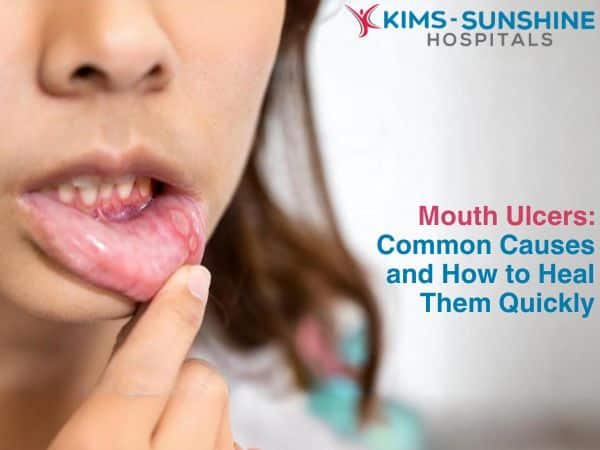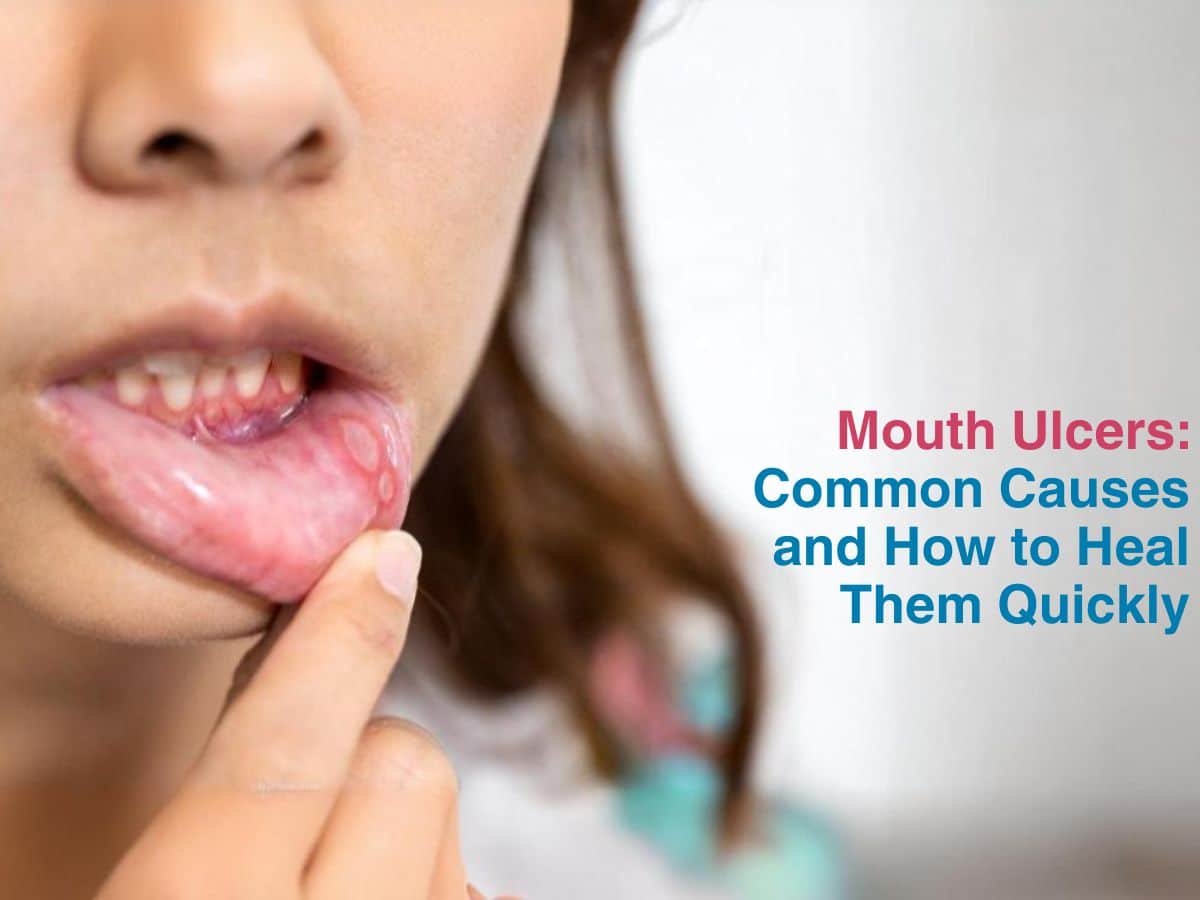
Mouth Ulcers: Common Causes and How to Heal Them Quickly

Mouth ulcers, also called canker sores can occur due to a variety of reasons. Apart from being slightly painful and mostly annoying, they are pretty harmless and most of them go away in a few days or in a couple weeks time. These ulcers or sores normally look white, yellow, red or even gray at times and they can be seen anywhere in the mouth- on the tongue, near the gums, in the inner lips or cheeks respectively. You won’t be able to eat spicy or salty food, or may not be able to drink specific items but and speak uncomfortably in general, but that’s about the extent of symptoms.
What Causes Mouth Ulcers And How To Treat Them-
There are many kinds of mouth sores, so let us learn what they can be, the symptoms and how they can be treated. We have listed them below-
- Canker sores affect some people more than others but we are not sure why that happens. Some of the main causes include biting your cheek, an infection or even stress. They may look yellow or white in colour, with some red in the edges.
- Leukoplakia literally means an overgrowth of non- cancerous whitish looking patches in your mouth. These lesions don’t always have a solid reason as to why they occur, but smoking or chewing tobacco are major triggers.
- Erythroplakia means red patches in the mouth – normally under the tongue or behind the lower front teeth. They are a cause for alarm as they are mostly precancerous or cancerous in nature.
- Oral thrush is caused by a fungal infection – as an opportunistic infection after long term antibiotic consumption. It may also be seen when you have a compromised immune system.
- Finally, mouth cancer itself can cause lesions. If you have these sores for more than 3 weeks to a month, then it is time to talk to a doctor.
Some well known causes for mouth ulcers include a poor diet with vitamin deficiencies, smoking, drinking, chewing tobacco, stress, eating very spicy foods, using the wrong kind of toothpaste or toothbrush, brushing too hard and even biting the tongue or the cheek while eating food etc. Fortunately, they do not spread via contact, unlike cold sores which can transmit the virus when you come in contact with any contaminated surfaces or items.
Stress And Mouth Ulcers: What’s The Connection?
Chronic stress can cause the immune system to work poorly, causing sores due to opportunistic pathogens infecting the oral cavity. Some people may get angry or stressed out and bite their cheek or lips often, leading to physical injury. High levels of cortisol mean greater inflammation- and this happens when you eat a poor diet, don’t sleep well and are anxious or depressed about something. Many studies have established a direct connection between mouth ulcer occurrence and amounts of stress, though the exact mechanism still needs to be understood.
How To Prevent Recurring Mouth Ulcers Effectively-
You should brush with the right kind of toothpaste and soft bristled brush to avoid any injury caused by excessive abrasion or force. Brushing twice a day and flossing is also good in the long run. What you eat is very crucial- Vitamin B deficiency has been linked to an increase in incidence of mouth sores. So, eat fresh produce and animal products regularly and stay away from overly spicy or fatty foods which can upset your gut.
Conclusion
Doctors normally look at your diet, medical history and symptoms to understand the cause for your mouth sores. The good thing is most of them go away in 2 weeks, without treatment and they can get better if you use any oral antiseptic gels. If you have very large looking, painful sores which don’t get better with medication or they last for almost a month- then you should talk to a doctor.






